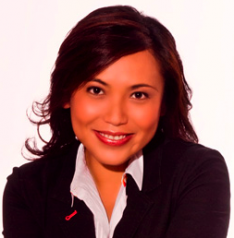Susana Tsui on her first nine months at the helm of PHD Asia Pacific
 Susana Tsui is nine months into her role running media agency PHD as Asia Pacific CEO, having joined from Ogilvy.
Susana Tsui is nine months into her role running media agency PHD as Asia Pacific CEO, having joined from Ogilvy.
She was in Cannes to catch up with Mumbrella Asia editor Robin Hicks about her impact on the agency since taking the reigns, her plans to shape the future of PHD, and why she arrived in Cannes in a helicopter.
So, Susana. You arrived in Cannes via helicopter. Why, and what sort of message do you feel that this sends to clients?
Everything in Cannes is driven by vendors. This is not about me being a Prima donna. I took a ride with some people at Salesforce.

